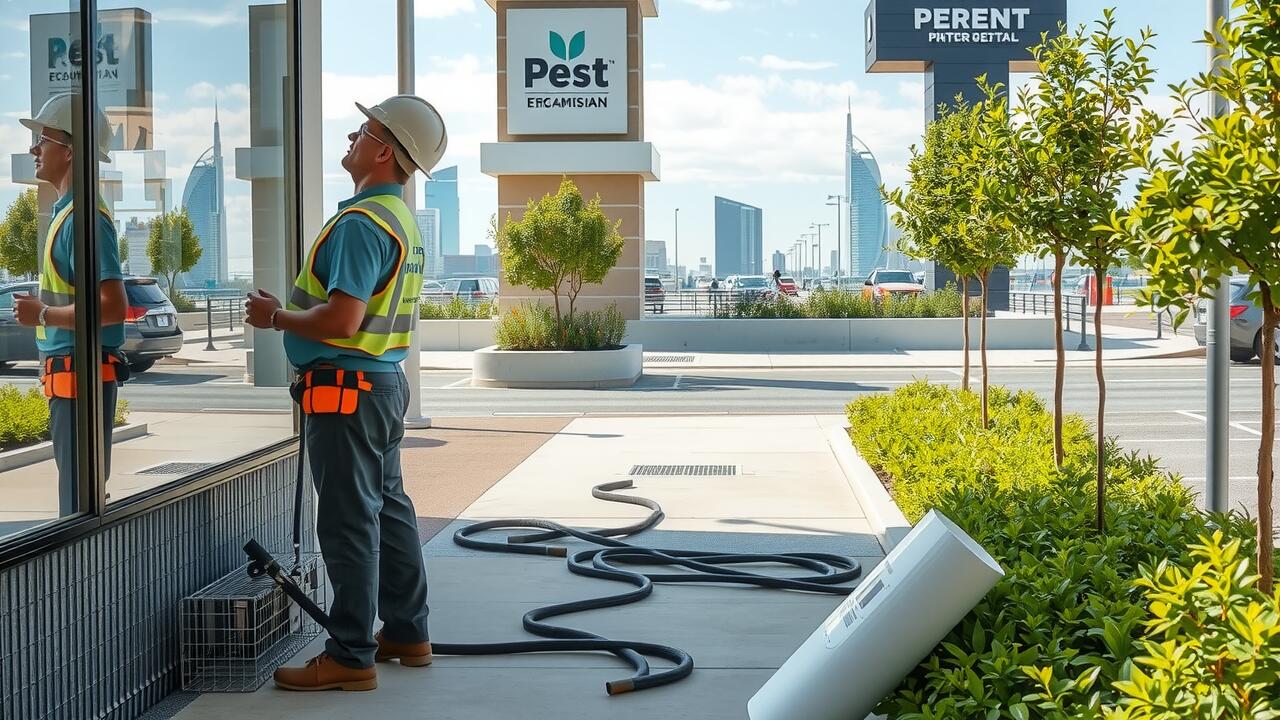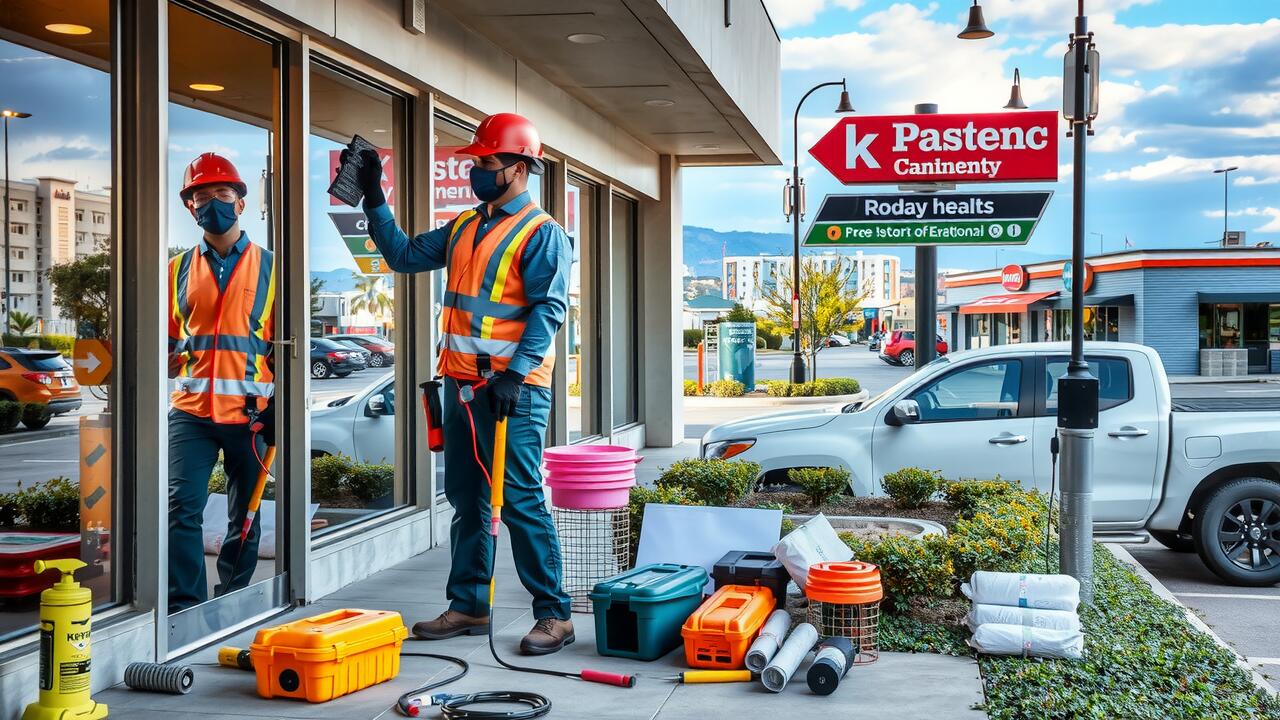
Effective Rodent Control Measures
Effective rodent control measures encompass a variety of strategies designed to minimize rodent presence in residential buildings. Tenants and landlords should collaborate to ensure that properties remain pest-free. Regular inspections of the premises can help identify problem areas, from potential entry points to signs of infestation. Employing measures such as sealing cracks and crevices, maintaining clean environments, and proper waste management can significantly reduce attraction to rodents.
In addition to preventive practices, engaging professional services for rodent management is vital. Many pest control companies offer specialized services such as Commercial Rodent Exclusions in Mission Bend, Texas. These professionals utilize techniques that not only eliminate existing rodent populations but also prevent future infestations. Timely intervention can make a considerable difference in managing rodent issues effectively while protecting the health and safety of residents.
Best Practices for Prevention
Preventing rodent infestations begins with maintaining a clean environment. Regularly removing food scraps and clutter minimizes attractants for rodents. Properly storing food in airtight containers further discourages these pests from entering living spaces. Ensuring that garbage bins are sealed tight and emptied regularly is also crucial in limiting potential food sources.
Sealing potential entry points is another essential step. Inspecting areas around windows, doors, and utility lines can reveal gaps that rodents might exploit. Caulking cracks and using weather stripping effectively closes these openings. For more comprehensive prevention, homeowners and landlords may consider professional solutions like Commercial Rodent Exclusions in Mission Bend, Texas, which can help create a barrier against rodent entry and reduce the likelihood of infestations.
Reporting Rodent Issues
When tenants encounter rodent problems, it is crucial to report these issues promptly. Most leases outline the procedure for reporting maintenance concerns, including pest infestations. Notify the landlord in writing, detailing the nature of the rodent problem and any observations regarding the severity or impact on living conditions. Keeping a record of communications can help ensure that the issue is addressed in a timely manner.
If landlords are unresponsive or fail to take appropriate action, tenants should reach out to local health departments or housing authorities. These organizations can provide guidance on tenant rights regarding pest control and may intervene if necessary. Additionally, for those seeking professional assistance, researching services like Commercial Rodent Exclusions in Mission Bend, Texas, may offer effective solutions to manage and prevent rodent issues in tenants’ homes.
Steps to Take as a Tenant
Tenants who suspect a rodent issue in their rental unit should take immediate action. Document any signs of rodent activity, such as droppings or nesting materials. Taking clear photos can help provide tangible evidence when reporting the problem. It is also important to keep a record of any communications with the landlord regarding the issue. This documentation could be crucial if the problem escalates.
After gathering evidence, tenants should promptly notify their landlord or property manager about the rodent problem. Providing details about the situation and any preventive measures already taken can help facilitate a swift response. If the landlord is unresponsive, tenants may need to contact local health departments to seek assistance. Residents in areas like Mission Bend, Texas, can also explore options for Commercial Rodent Exclusions in Mission Bend, Texas, to address the situation effectively.
The Role of Health Departments
Health departments play a crucial role in managing public health concerns, including rodent infestations. They often provide guidelines and regulations that landlords and tenants are expected to follow. These agencies conduct inspections and can enforce measures to ensure properties maintain sanitary conditions. Their involvement can be significant in cases where rodent problems persist despite tenant complaints or landlord actions.
For specific communities, such as Mission Bend, Texas, health departments may offer localized resources. This includes information on commercial rodent exclusions in Mission Bend, Texas, which may be available to assist landlords in taking necessary prevention and control measures. Understanding the role of health departments can help tenants navigate the complexities of rodent issues while also holding property owners accountable for maintaining a safe living environment.
Local Resources for Tenants
Tenants facing rodent issues can benefit from various local resources aimed at mitigating these problems. Community health departments often provide guidelines on pest control and inform residents about their rights and responsibilities. Additionally, local pest control companies offer services tailored to the needs of renters, ensuring safe and effective resolutions. Accessible information regarding these services can often be found online or through community centers.
For those living in areas like Mission Bend, Texas, specialized services such as Commercial Rodent Exclusions in Mission Bend, Texas, are available. These companies focus on both prevention and elimination of rodent infestations. Tenants are encouraged to reach out to these services if they encounter issues, as addressing rodent problems promptly can prevent more significant health risks and property damage.
FAQS
Are landlords legally required to control rodent infestations in Texas?
Yes, landlords in Texas are generally responsible for maintaining a habitable living environment, which includes addressing pest control issues like rodent infestations.
What should tenants do if they notice rodents in their rental property?
Tenants should report the rodent issue to their landlord or property manager as soon as possible, documenting the problem in writing to ensure there is a record of the complaint.
Can tenants take action to control rodent problems themselves?
While tenants can take preventive measures, such as sealing food and keeping the living area clean, they should notify the landlord for professional pest control services, as it is ultimately the landlord’s responsibility to address infestations.
What resources are available if a landlord fails to address rodent issues?
Tenants can contact their local health department or housing authority for guidance and potential assistance in dealing with unresponsive landlords regarding pest control.
Are there specific Texas laws regarding pest control responsibilities for landlords?
Yes, Texas law requires landlords to comply with health and safety codes, which typically include the responsibility to ensure that rental properties are free from pest infestations, including rodents.
